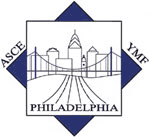 |
|
|
Observations |
|
|
|
“For the morning session, I used the Civil Engineering Reference Manual (CERM) for almost 85% of the problems.” “The morning portion is only basic concepts so don't kill yourself relearning Environmental, and the advanced topics in the other disciplines. Just know where to find them. Spend the bulk of your time on studying your discipline.” “Don’t get overconfident after the morning portion! The afternoon portion is drastically more challenging.” Afternoon
Session “If you take the Structural Depth Portion in the afternoon, take all the required codes, even if you are not familiar with them. For example, there were timber and masonry problems right out of the codes which were easy to find.” “For the Structural Depth Portion, most of the Geotech problems dealt with retaining walls and footings. Know them well, as they seemed to be about 20-30% of the afternoon portion.” General
Comments “Graphing and programmable calculators are permitted by NCEES at the time. However, you are not permitted to use calculators with word processing capabilities.” “Don't even think of bringing your cell phone. Leave it in your car.” “During the test don't panic and have some confidence in your thought processes. Don't let the questions you don't know effect you so much that you get the questions that you do know wrong.” “I watched the time, making sure not to spend too much on one problem and then not have enough at the end to finish.” “If you don't know a question and really don't have a clue about it, don't kid yourself that you are gonna be able to learn it in 4 minutes. Move on, and if you have extra time at the end look into it with more depth otherwise guess and hope you get lucky.” “Take about 10 minutes to look through all the problems on the test and do the ones you are most comfortable with first. This builds some confidence and does not induce panic.” “Check your units. There were a lot of questions where you had to check the units at the end. (i.e. - inches instead of feet, psi instead of ksi.)” “Not all questions involve mathematical solutions so don't waste time trying to put every question into a formula...it is not always necessary." “Watch out for trick questions! If a problem seems too easy to be true, they might be trying to trick you.” “Read questions slowly and don't panic. Long questions scared me at first and I got flustered half way threw them. I soon realized a lot of the given information was not needed.” “It seemed the guidelines that NCEES provides for what percentage of each subject will appear on the exam are only guidelines. The exam I took definitely was not broken into the percentages that NCEES stated. If I'd known this going in I would have studied more across the board, rather than concentrating on just a few high-percentage topics.” “The questions on the exam are in no special order. I expected all the pump questions to be together. Every subject is scattered throughout the exam.” “Keep a good eye on the clock. In the afternoon especially! This way you’ll be better suited to manage your time.” “TIME - Beware of the time...don't waste time on problems you can't figure out or problems you don't have any idea how to start. You can always go back to them if you have any time remaining. In the morning, I would start with the portion that you are most familiar with...it helps to get comfortable and into a good mindset.” “REFERENCES - Due to the format in the morning, I would try to take as many books as possible...there is no telling what type of questions you could get. There is time in the morning to look up obscure information on, in my case, environmental and structural questions. Also, try to be somewhat familiar with the organization of all the reference materials that you taking to the test. In the afternoon, I would only keep the materials that relate to your areas of the test...put the rest into your car and leave them there...there probably won't be time to look through them anyways.” “Bring any good luck charms with you, especially if they are somewhat odd. These can serve two purposes - helping you and distracting others. It’s also fun to watch people look at you like you are an idiot.” “Bring water, snacks, energy food and your lunch. There really isn’t anything close to run out to for lunch.” “Do not “overhydrate!” Going to the bathroom eats up precious time.” “Avoid discussing or comparing answers with others during the lunch break. This could upset or distract you and make you less calm for the afternoon session.” “Remember, no loose leaf papers are allowed. Write EVERYTHING on the paper that is provided. If you are found copying questions and taking them out of the exam room, you may not be allowed to take the exam again for another FIVE YEARS! This recently happened in Delaware .” “Believe
it or not, according to NCEES, beginning with the April 2002 exam administration,
all examinees must use the mechanical pencils NCEES provides at the
examination site!” “After the exam is done, remember it is only a test. You still have a job on Monday!” Applying
for the Exam
|
|
|
Copyright
© 2011 Philadelphia ASCE YMF Last modified: January 31, 2011 |

